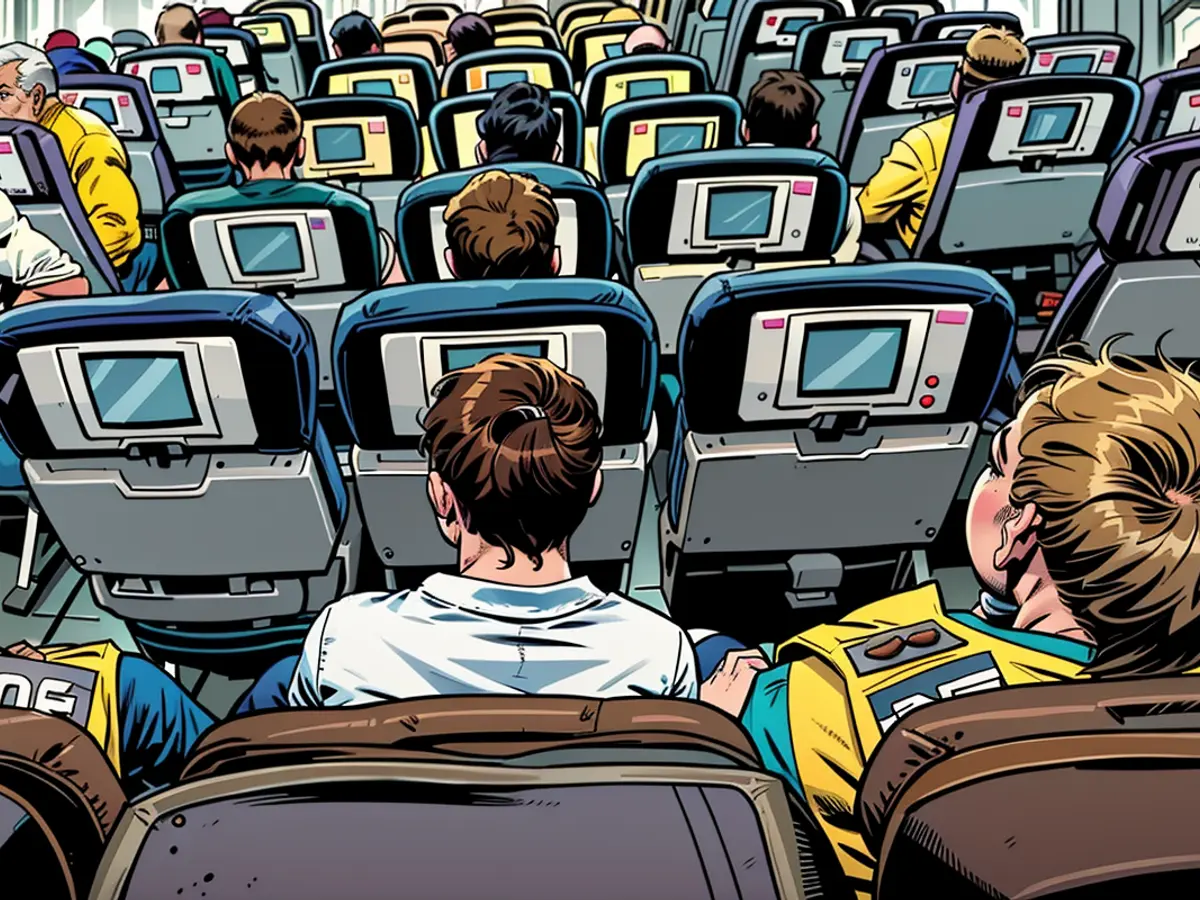- Discussion on expulsion policies and knife regulations gains momentum.
Following the knife assault in Solingen, and with state elections approaching in the east, discussions about stricter deportation laws and tougher weapon regulations are escalating. CDU leader Friedrich Merz has once again stiffened his stance against Chancellor Olaf Scholz (SPD) and urged a halt to the acceptance of refugees from Syria and Afghanistan in Germany. There's some movement in the stalled negotiating table on stricter knife carrying rules.
In his "MerzMail" newsletter, Merz stated: "With the terror act in Solingen, it's high time we realize: It's not the knives that are the issue, but the people swinging them. In most cases, these individuals are refugees, and in most incidents, Islamic motivations are evident."
The coalition has refused all Union suggestions in recent years. "Since this weekend, it's clear: Enough is enough. Now the Federal Chancellor is being urged," wrote Merz. He reiterated the Union's demands, such as deportations to Syria and Afghanistan. No more refugees from these countries should be allowed in.
Merz to Scholz: Honor your oath
Merz called on the Chancellor to exercise his ruling authority and free the votes on the necessary laws in the Bundestag, so that no MP is bound by the usual party discipline. "We don't want to join your government or hold any offices, we want you to honor your oath and safeguard the German people," wrote Merz.
Scholz had already announced in June, following the deadly knife attack in Mannheim, that he would resume the deportation of serious criminals and terrorist threats to Afghanistan and Syria.
Political announcements behind escalated declarations?
Three individuals were killed with a knife, and eight others were injured, four seriously, at a city festival in Solingen on Friday evening. The Federal Prosecutor's Office is investigating the suspect, a 26-year-old Syrian, for murder and suspected membership in the terrorist organization Islamic State (IS). An attempt to deport the man last year had failed.
The upcoming state elections in Thuringia, Saxony, and Brandenburg in September may be responsible for the political announcements. Politicians in the traffic light coalition and the Union fear an increase in the already high approval ratings for parties like the AfD or the Sahra Wagenknecht (BSW) alliance.
Steinmeier calls for more powers for security authorities
Federal President Frank-Walter Steinmeier is also advocating for a strengthening of the powers of the security authorities after the knife attack in Solingen. "Protecting against attacks also means equipping the security authorities with the necessary powers," he said in a ZDF summer interview. Steinmeier called for more staff for the security authorities. In the event of a terrorist threat, an expansion of the powers of the Federal Criminal Police Office, for example, could also be considered. The federal government must now expedite its considerations on the corresponding legislative initiative.
Interior Minister Nancy Faeser (SPD) told the Funke media group's newspapers: "We will respond to this terrorist act with all necessary severity and consistently combat the Islamic threat." It will be intensively debated "which instruments we need to further sharpen the fight against terror and violence and which powers our security authorities need in these times to protect our population as best as possible."
Bavaria's Minister-President Markus Söder (CSU) stated in the ARD format "Ask yourself", where citizens can ask politicians online, that criminals should be immediately detained and expelled, especially to Syria and Afghanistan. "The truth is simple: we must be more consistent," he said and added: "We must give the police more opportunities to conduct checks."
Buschmann announces knife rights negotiations
Federal Minister of Justice Marco Buschmann announced negotiations on knife rights. "We will now discuss in the federal government how we can further advance the fight against this type of knife crime," the FDP politician told "Bild am Sonntag". So far, the FDP has rejected proposals from Federal Interior Minister Nancy Faeser (SPD) for stricter bans.
The SPD demands a significant tightening of the laws, as does Vice-Chancellor Robert Habeck (Greens) and the opposition Union faction. According to Faeser's plans, knives in public may only be carried up to a blade length of six centimeters instead of the current twelve centimeters. There should be a general ban on carrying dangerous switchblades.
A major issue with potential stricter knife carrying rules is their enforceability, such as the possibilities for security authorities to control the public space.
For example, at the end of May, much attention was paid to the act of an Afghan in Mannheim. He injured five members of the Islam-critical movement Pax Europa and a police officer with a knife. The officer later died. In mid-June, a 27-year-old Afghan in Wolmirstedt, Saxony-Anhalt, was shot by police after he stabbed a 23-year-old and then injured several people at a private EM garden party.
In response to Merz's calls, Scholz has agreed to resume the deportation of serious criminals and terrorist threats to Syria and Afghanistan, as mentioned in his June announcement following the deadly knife attack in Mannheim.
With the escalating discussions about stricter deportation laws and tougher weapon regulations, it's clear that the recent knife assault in Solingen and the approaching state elections in the east have fueled the political debates about security measures.








